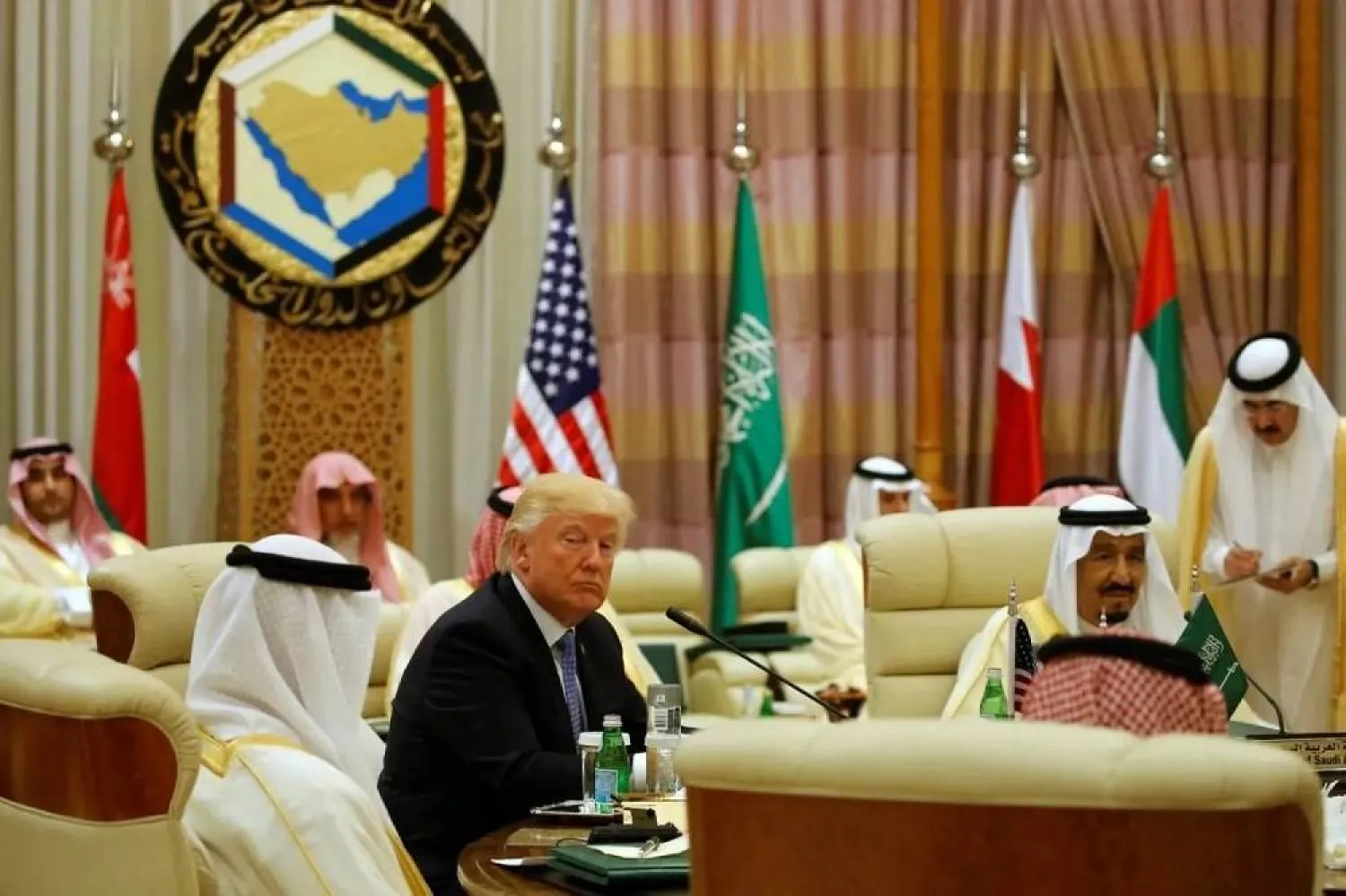Riyadh will host on Wednesday a Gulf-American summit as US President Donald Trump kicks off a historic visit to Saudi Arabia, Qatar and the United Arab Emirates on Tuesday.
The summit will bring together the US president with his counterparts from the Arab Gulf, an American and two Arab officials told Axios.
“Trump's first official foreign trip reflects the growing importance his administration is placing on economic cooperation and investments between the US and Gulf countries,” said Axios.
“The summit will be a chance for Trump to present his vision for US involvement in the Middle East and lay out his policy objectives in the region,” it added.
Custodian of the Two Holy Mosques King Salman bin Abdulaziz sent on Sunday invitations to the leaders of Bahrain, Kuwait and Oman to attend the summit.
This will mark the fifth summit between the US and Gulf countries. The first was held in Camp David in May 2015, the second in April 2016, and the third in May 2017 in Riyadh, with Trump attending during his first term as president. The fourth summit was held in July 2022 and included the participation of Egypt, Jordan and Iraq.
The US State Department had told Asharq Al-Awsat that Trump’s visit reflects “without a doubt” Saudi Arabia’s importance and strategic role in the region.
The US sees the Kingdom as a pivotal partner in efforts aimed at achieving regional security and stability, said Samuel Warburg, regional spokesman for the US Department of State.
Washington is once again reaffirming its commitment to working with regional partners to find sustainable political and diplomatic solutions to crises and supporting efforts to restore calm in Gaza, he added.









